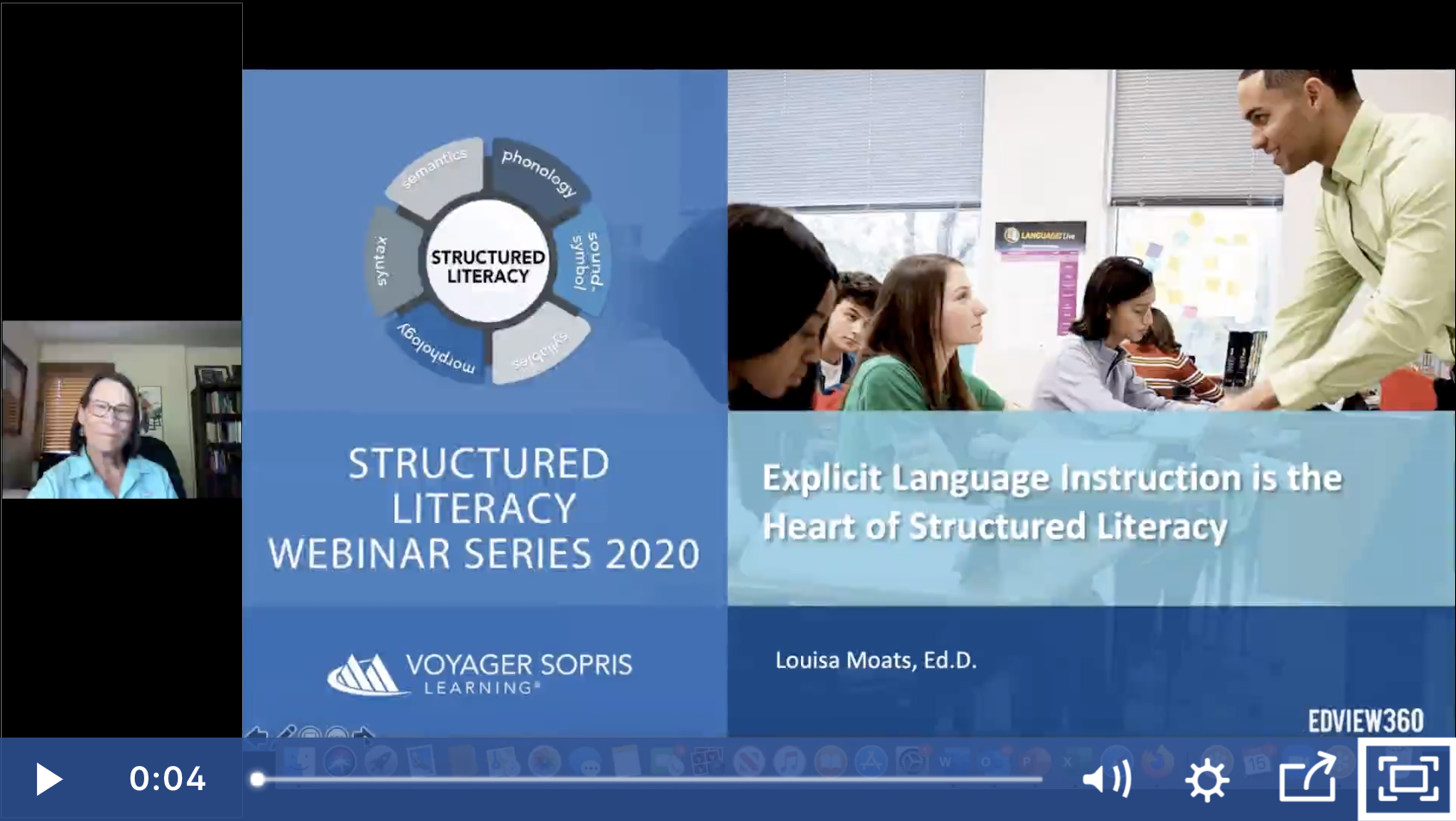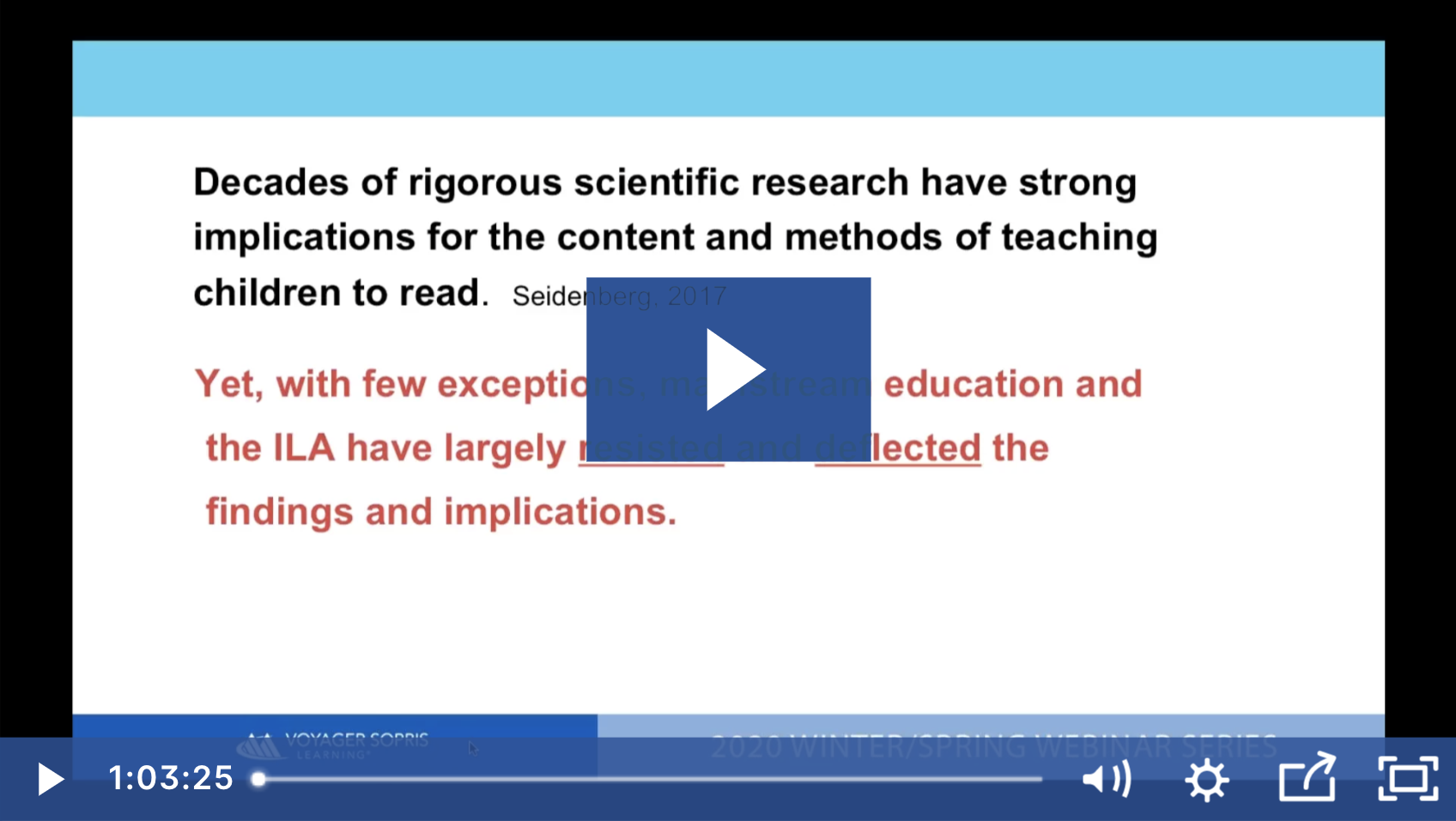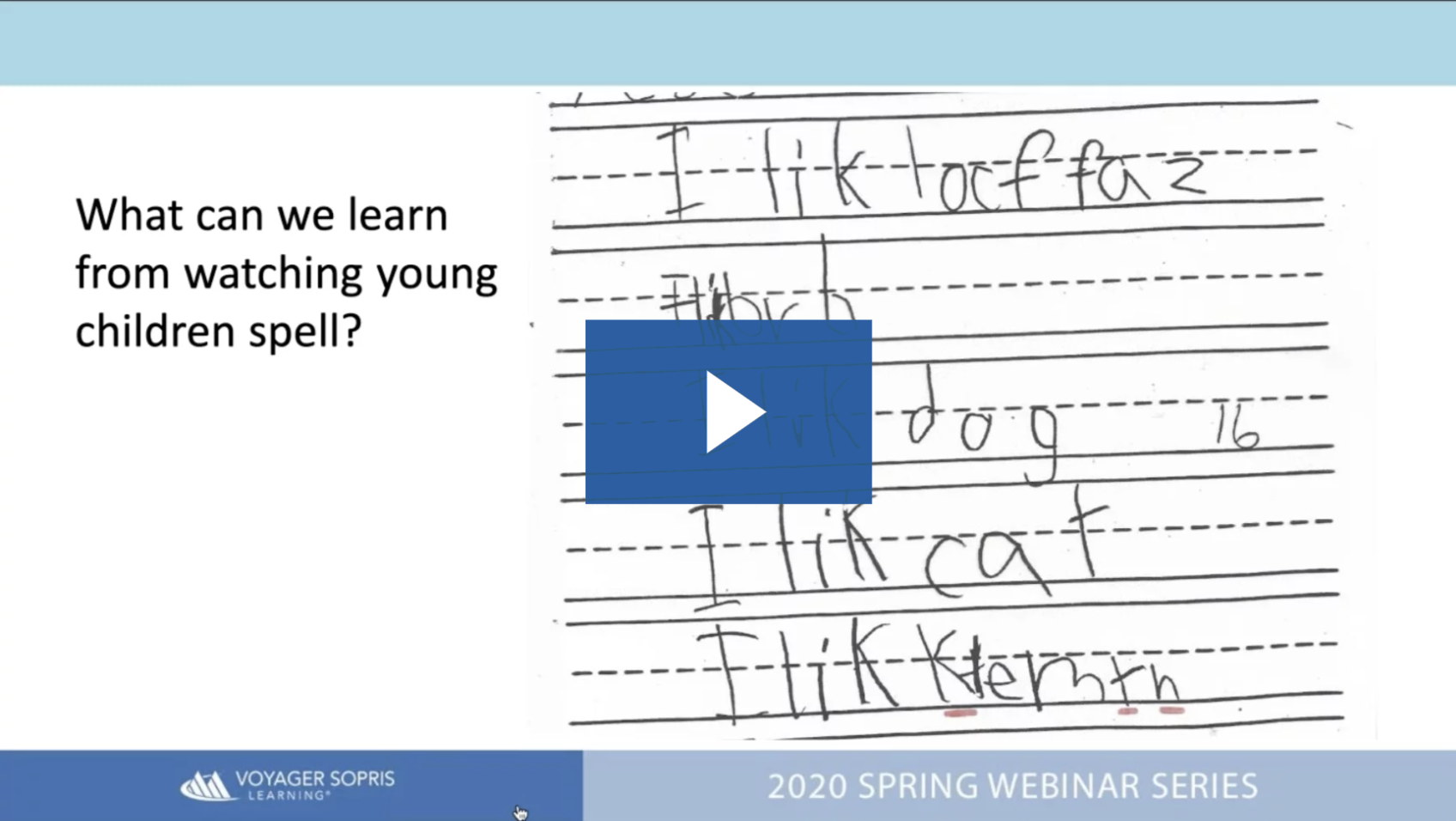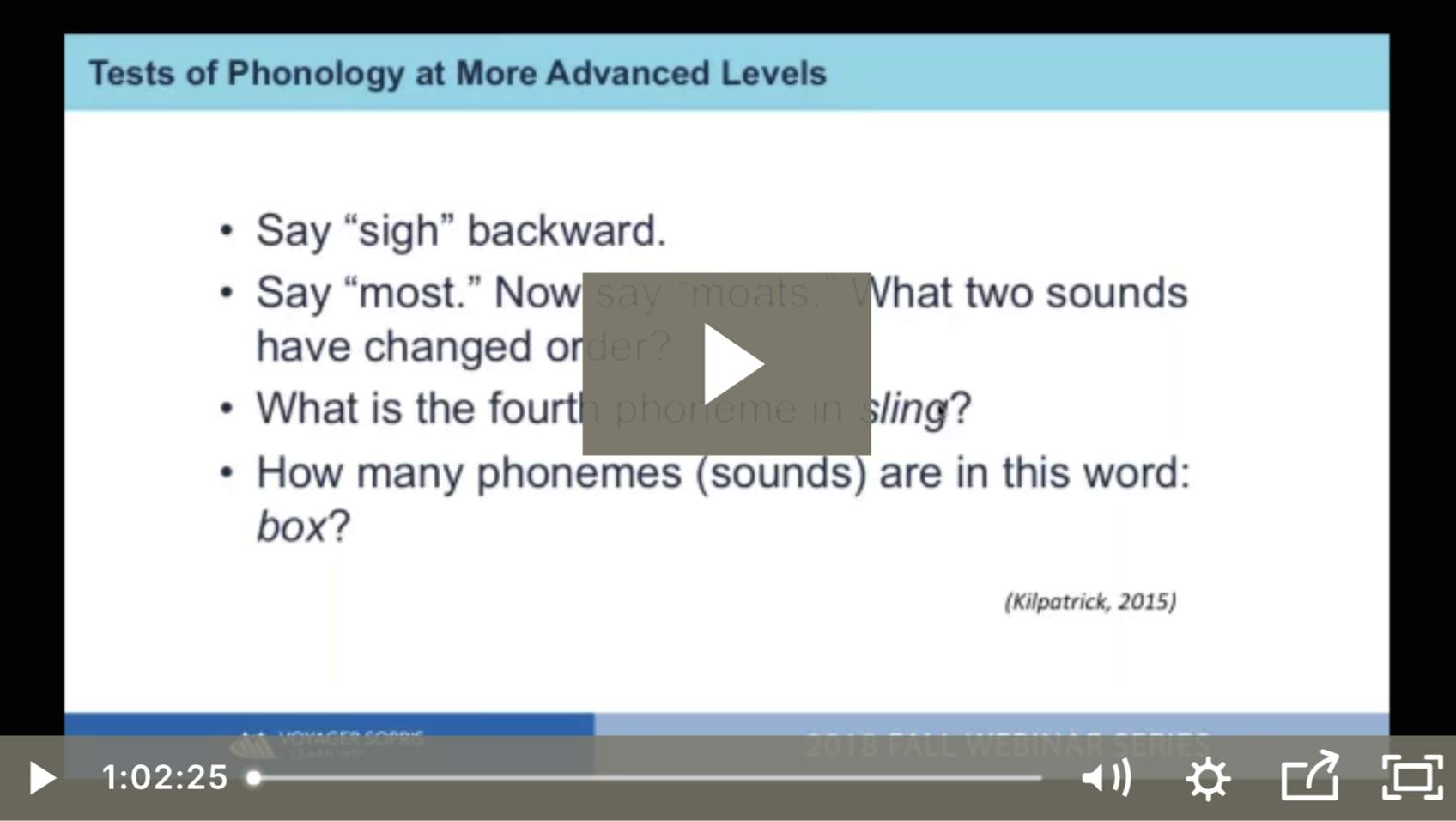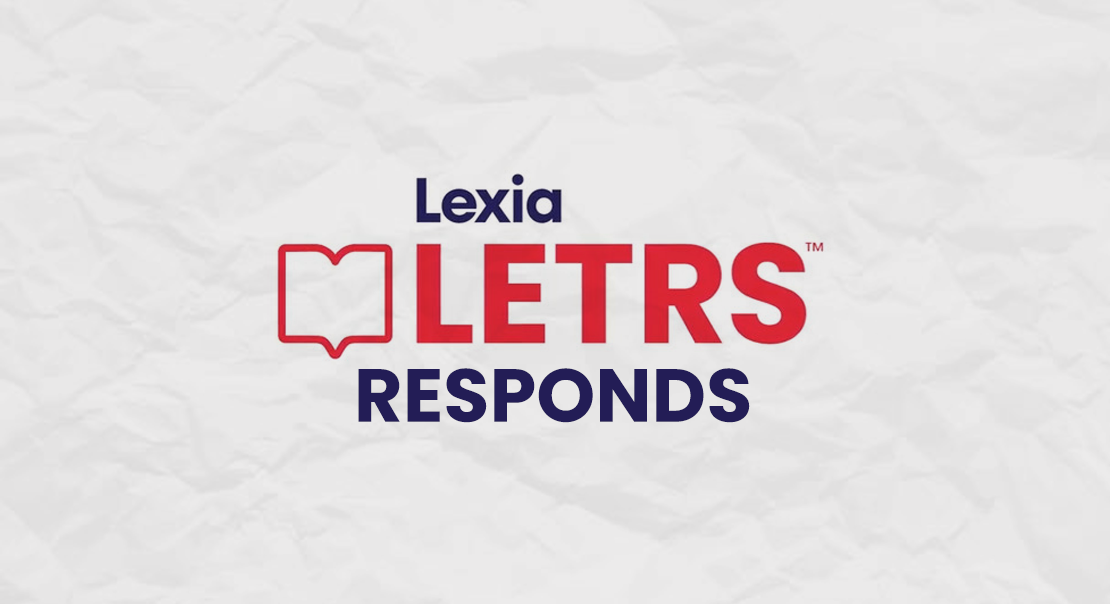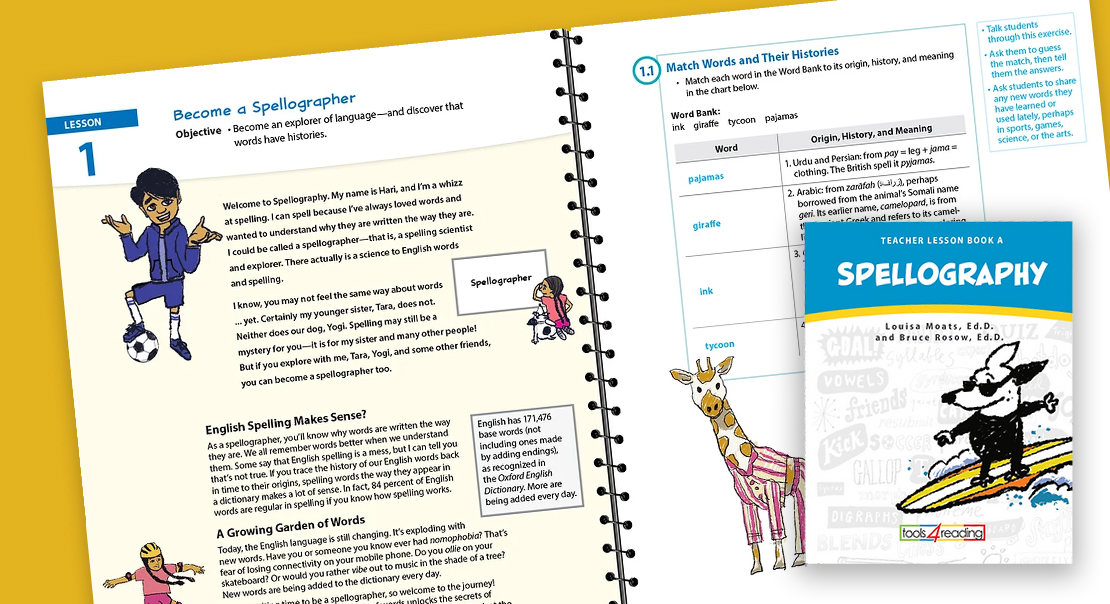Take a look at the wide range of presentations by Dr. Moats. Watch at your convenience.
Explicit Language Teaching is the Heart of Structured Literacy
Dr. Moats speaks to a topic that she knows intricately: Structured Literacy. Dr. Moats identifies the content and procedures for teaching Structured Literacy, and presents examples of how to teach phoneme awareness, morphological awareness, phoneme-grapheme correspondences, and syllable patterns within an explicit lesson framework.
Is the Science of Reading Influencing Mainstream Educational Practices? Not Enough.
Scientific study of how children learn to read has been underway in the U.S. and around the world for several decades. Much has been discovered about the language and cognitive abilities related to success or difficulty in reading, about the neurological pathways that must be developed, and about implications for instruction. Join this fascinating and enlightening discussion that will target why and how this has happened. Dr. Susan Brady, with special guest Louisa Moats, will identify steps to bring the gains from science to teachers and their students.
Speech to Print vs. Print to Speech: Does It Make a Difference in Beginning Reading Instruction?
Join this spirited presentation as our esteemed literacy experts discuss the rationale and implications of “speech to print” in early reading instruction. Examples of several curricula to contrast a speech-to-print approach with the inverse will be shared. Together, these respected authorities will analyze writing samples and lesson formats from first grade programs in order to demonstrate the importance of orienting students to spoken language as the anchor for processing print.
Hard Words: What Teachers Don’t Know About Teaching Reading and What to Do About It
Original broadcast: March 2019
Millions of American students do not read at even a basic level for their grade. Students often fall behind to the extent that they are recommended for interventions or assessed as having a learning disability, when in fact, the problem is they did not receive adequate and appropriate reading instruction. The truth is—and research proves this—that effectively teaching reading is a science in and of itself, and teachers need proper training. If educators are prepared to teach all five essential components of literacy instruction (phonemic awareness, phonics, fluency, vocabulary, and comprehension) the result is higher student success rates.
Read
Recent Blogs by Dr. Moats
A few of Dr. Moats’ most popular and informative blogs are listed here.
Read
Recent Blogs by Dr. Moats
A few of Dr. Moats’ most popular and informative blogs are listed here.

